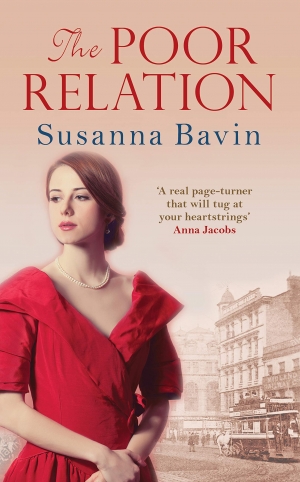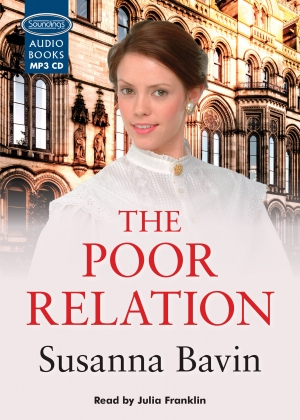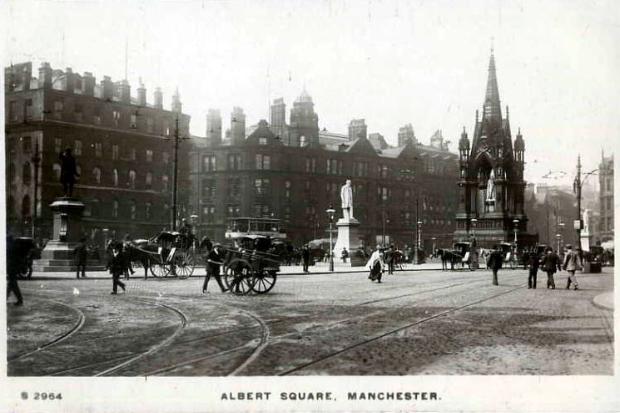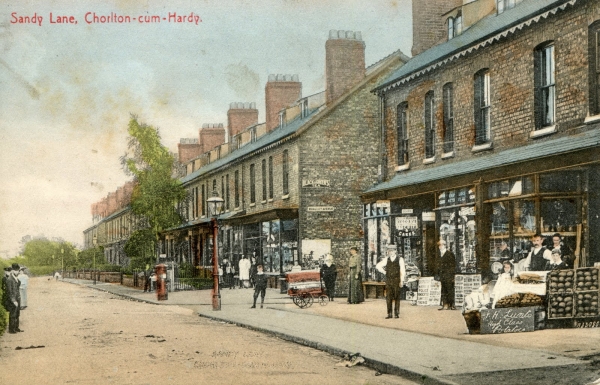THE POOR RELATION
The Poor Relation is a family drama of secrets, ambition, duty and love, set against an Edwardian backdrop in which privilege is no guarantee of happiness and conventions are there to be challenged.
Manchester 1908. Attractive, intelligent MARY MAITLAND, 23, is incensed when her pompous Town Hall boss won't promote her because she is a woman. Worse, her father, who also works at the Town Hall, has known all along that she had no hope of advancement: why would she need it? It is his job to support her. Mary determines to strike out on her own. Is it possible to be a dutiful daughter and at the same time spread her wings?
She finds work at a Women's Employment Agency, run by two progressive suffragists. There, her talent for writing is encouraged and she starts writing socially-aware articles for newspapers and magazines, though she has to use a pen-name so as not to be linked to her landed, titled relations, the KIMBERS. Mary's ultra-respectable lower-middle-class parents, JOHN and LILIAN, are horrified lest she brings the name of the mighty Kimbers into disrepute, especially when she makes friends with her distant cousin, carefree CHARLIE KIMBER, the heir, who finds her independent streak and social conscience intriguing.
But Lady Kimber has other plans for Charlie. He is destined for her beautiful daughter Eleanor. When it seems that Mary Maitland - that upstart! - might thwart these plans, Lady Kimber sets out to ruin her.
h


Audiobook of The Poor Relation
The audiobook is 11 hours 30 minutes long and is read by the wonderful Julia Franklin, who is the reader for all my books.
It is available on Audible or you can buy it direct from the publisher, Isis Soundings.
More About The Poor Relation
The story is set in Edwardian times. Here is a piece about the social background to the book.
Here is an introduction to the book's viewpoint characters.
You might be surprised to know that the book that eventually became The Poor Relation was written and re-written over the best part of twenty years. Yes, twenty! You can read about it here.
* * * *
Reviews of The Poor Relation
Tara Greaves at AfterTheRainComesSunshine
"It has more drama than a Netflix box set, together with romance, mystery, intrigue and a captivating look at the social history of the period...."
You can read the full review here.
Historical Novel Society review:
"This is a gripping, heart-warming story that builds conflicts of deepening complexity, reflecting the history of a very troubled pre-war era, involving a variety of engaging characters. It is definitely a recommended read for lovers of intriguing sagas."
You can read the full review here.
* * * *
Places in The Poor Relation
Manchester Town Hall

This old postcard shows the Town Hall, where Mary and her father both work. The building stands in Albert Square - the statue within the towered structure is of Prince Albert.
Here is the beginning of the book. Mary is at work in the Town Hall.
Annoyance rushed through Mary, followed by a twist of surprise. It wasn’t like her to flare up, even if it was only on the inside. As Mr Treadgold left the office, she smoothed her skirt and touched the pen and pencils in the groove on her desk, as if they needed lining up. Bright sunshine poured through the windows. Earlier, this had felt like a promise of good things to come, but now golden darts lay strewn in a jagged pattern across the floor. Earlier, she had run her fingers over her desk, picturing the sit-up-and-beg desks in Accounts, imagining herself perched at one of those, writing in a ledger; imagining what she hoped would be her future.
More fool her.
Her hands clenched. She hadn’t felt this way the first time, nor the second, but this was the sixth time – the sixth! – in five years and dismay and disappointment had long since evaporated. Heaven help her, that first time she had questioned whether it was her own fault for trying too soon. She had even worried that Mr Treadgold might think her uppity. Huh!
‘I say, Miss Maitland,’ said Spotty Ronnie, the proud beam dropping from his face. ‘Are you all right?’
No, she jolly well wasn’t. Her skin felt tight. Rising, she shook hands. Spotty Ronnie’s paw was moist; she held her smile in place. Mustn’t look like a bad sport.
The beam reappeared. ‘I thought for a moment you were about to be a sore loser, but then I thought, no, not our Miss Maitland. Far too sensible.’
Sensible. Oh yes, she was that, all right. Not one to make a fuss. A good girl. Hadn’t she always been a good girl?
‘You’re a good girl,’ Dadda had said after Mam died when Mary was ten. ‘It’s your job to take care of baby Emma now.’
And ‘You’re a good girl,’ he said when he married again and she didn’t kick up a fuss, unlike Granny, who had created an almighty stink.
Well, for once in her life Mary Margaret Maitland was going to kick up a fuss. Not in front of Spotty Ronnie, though.
‘Congratulations, Mr Dearden.’
‘Ta very much. The best man won, and all that.’
The best man? The only man. Not even that. A boy, a youth. Was she supposed not to mind losing out to a young shaver?
The Town Hall clock struck midday. How proud the sound had made her when she first worked here. The chimes had rung out to reinforce her position first as office junior, then as a lady-clerk. She was twenty-three now and the chimes had marked ten years of her life.
The door opened to reveal the grinning face of one of Ronnie’s cronies. Ronnie snatched his bowler and scarpered. Whoops of delight floated back to her. The thought of Spotty Ronnie sharing his triumph brought heat to her face.
The moment had come.
She could get carpeted. Mr Treadgold might puff his way up to the fourth floor and complain to Dadda, and then she would get carpeted at home too. But if she didn’t speak out, she would wish she had. It was a question of self-respect.
Sandy Lane

Sandy Lane is where Granny and Aunt Miriam live in Candle Cottage, which is Granny's grace-and-favour cottage from the Kimber family.
Here, the Maitlands go to Candle Cottage for tea.
It was unseasonably hot that Sunday as they trooped down Sandy Lane to have tea in Candle Cottage with Granny and Aunt Miriam. Candle Cottage was a pretty little house and going there ought to have been a pleasure, but Mary’s toes had screwed up in embarrassment too many times whenever Granny told someone that it was her ‘grace-and-favour residence, courtesy of my Kimber in-laws.’ Honestly, didn’t she have any shame? Well, no, frankly not. The rest of the Maitlands might spend their lives tiptoeing on social eggshells, but not Granny.
Mary drew an extra breath before stepping over the threshold, for all the good it would do. The atmosphere closed around them, thick as soup. Granny didn’t believe in fresh air. She didn’t have windows open and, with the sun beating down, she wouldn’t open the curtains either, for fear of fading the carpet.
They all crammed into Granny’s parlour for dainty sandwiches and cake.
‘So our Mary is going to be a lady-librarian,’ said Granny.
Mary turned to Aunt Miriam, eager to share her success. ‘Why don't you apply? You might prefer it to teaching piano.’
‘You’ll do nowt of the sort, our Miriam,’ Granny snapped.
‘You know I’ve never liked teaching the piano, Mother.’
‘It’s ladylike.’
‘But if it’s acceptable for Mary... ’
‘Aye, well, happen she’s got a brain in her head. Not like you. If you apply, I’ll write a letter meself and tell them library people that you’re man-mad and hoping for a spot of slap and tickle behind the bookshelves, and I wouldn’t be far wrong, would I? So you can stop thinking it right this minute, lady. I’m not having you doing owt but teaching piano, us with our Kimber connections.’

